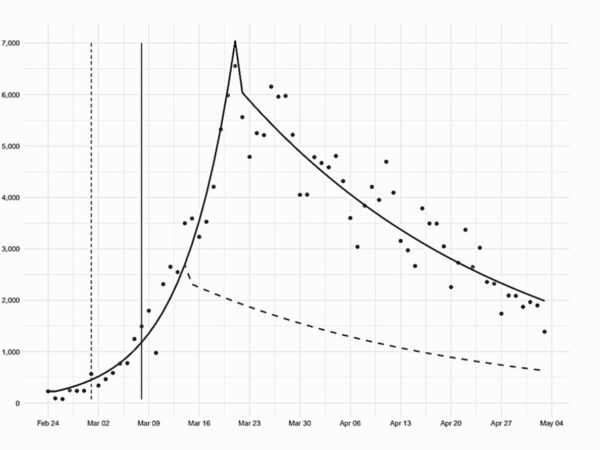Effect of timing of implementation of the lockdown on the number of deaths for COVID-19 in four European countries
Publication date: 20/10/2020 – E&P Code: repo.epiprev.it/1984
Authors: Raffaele Palladino1,2,3, Jordy Bollon4, Luca Ragazzoni4,5, Francesco Barone-Adesi4,5
Abstract: Background: Lockdown in France, Italy, Spain and United Kingdom, the four European countries which have been impacted the most by the COVID-19 emergency, was enforced 13 to 16 days after the one in Hubei, when normalizing for the time when the outbreak hit 50 cases in all countries. This prompts the question on how many deaths for COVID-19 could have been avoided during the early phase of the pandemic, had containment measures in European countries aligned in timing with those adopted in China.
Methods: We modeled the daily number of COVID-19 deaths in France, Italy, Spain, United Kingdom and we estimated the effect of the national lockdown implementing an interrupted time series analysis. Then, we created four separate counterfactual scenario by predicting the daily number of deaths that would have been observed in the four countries if the lockdown had been implemented at the same time as in Hubei. Finally, we estimated the relative change in the number of total deaths in the counterfactual scenario, compared to the observed one.
Results: If an early lockdown had been implemented, the death toll would have been 2461, 6769, 6792 and 4071, corresponding to a 92% (95%CI: 86% to 95%), 81% (95%CI: 77% to 84%), 78% (95%CI: 62% to 86%) and 90% (95%CI: 88% to 92%) relative reduction, as compared with observed data.
Conclusions: We found that a more rapid and homogeneous response would have avoided a substantial number of deaths. Our results underline the need of strengthening public health emergency preparedness at national and global level.



